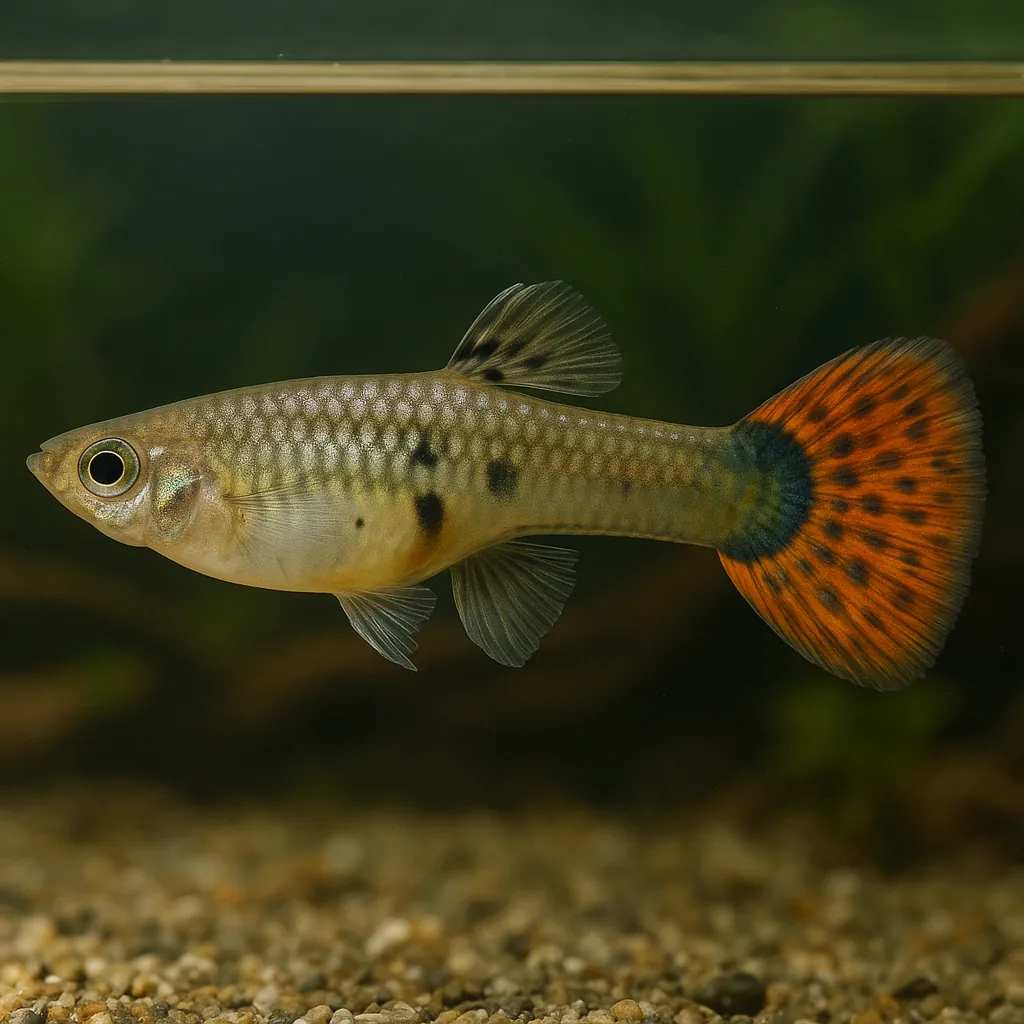
Guppy
Introduction
The Guppy, scientifically known as Poecilia reticulata, is a vibrant and lively freshwater fish cherished by aquarists worldwide. Renowned for their dazzling colors and dynamic personalities, guppies are often referred to as "millionfish" due to their prolific breeding habits. Their hardy nature and ease of care make them an excellent choice for both novice and experienced fishkeepers.
Why are guppies so popular among aquarists?
Guppies are favored for their striking coloration, active behavior, and relatively simple care requirements, making them ideal for hobbyists of all levels.
Are guppies suitable for beginners?
Yes, guppies are hardy and adaptable, making them well-suited for beginners looking to start their aquarium journey.
Care and Environment
Proper care is essential to ensure the health and longevity of guppies. Here's a comprehensive guide to their care requirements:
What is the minimum tank size for guppies?
A minimum tank size of 19 liters (5 gallons) is recommended for a small group of guppies. However, a larger tank, such as 38 liters (10 gallons), is ideal for accommodating more guppies and providing a more stable environment.
What are the ideal water parameters for guppies?
Guppies thrive in water temperatures between 23–28°C (74–82°F), with a pH range of 6.8–7.8, and water hardness between 8–12 dGH. Maintaining these parameters is crucial for their well-being.
Do guppies require a heater in their tank?
Yes, using an aquarium heater helps maintain a stable temperature within the optimal range, which is vital for guppy health.
What type of filtration is suitable for a guppy tank?
A reliable filtration system is essential to keep the water clean and free from toxins. A hang-on-back filter is suitable for smaller tanks, while larger setups may benefit from an external canister filter.
How should I decorate a guppy tank?
Incorporate live plants like Java moss and Amazon sword to provide hiding spots and reduce stress. Ensure decorations have smooth edges to prevent injury.
What should I feed my guppies?
Guppies are omnivorous and should be fed a balanced diet of high-quality flake food, supplemented with live or frozen foods like brine shrimp and bloodworms. Feed them twice daily, offering only what they can consume in two minutes to prevent overfeeding.
Are guppies sensitive to water changes?
Guppies are hardy but can be sensitive to sudden changes. Perform regular partial water changes of about 25% weekly to maintain water quality without causing stress.
Origin and Habitat
Guppies are native to the freshwater streams and rivers of northeast South America, including countries like Venezuela, Guyana, and Trinidad and Tobago. They inhabit a variety of environments, from slow-moving rivers to brackish estuaries.
What type of natural habitats do guppies prefer?
In the wild, guppies are found in diverse habitats, including freshwater streams, rivers, and brackish waters, often with abundant vegetation.
Have guppies been introduced to other regions?
Yes, guppies have been introduced worldwide to control mosquito populations, thriving in various environments due to their adaptability.
Temperament and Compatibility
Guppies are peaceful and social fish that thrive in groups. They are best kept in schools of three or more to promote natural behavior and reduce stress.
Can guppies be kept with other fish species?
Yes, guppies can coexist with other peaceful, similarly sized fish such as tetras and corydoras. Avoid housing them with aggressive or fin-nipping species.
Do male guppies display aggression?
Male guppies may exhibit mild aggression towards each other, especially in the absence of females. Maintaining a proper male-to-female ratio can help mitigate this behavior.
Is it necessary to keep guppies in groups?
Yes, guppies are social and should be kept in groups to ensure their well-being and natural behavior.
Interesting Facts
Guppies are not only beautiful but also fascinating creatures with unique traits.
Why are guppies called "millionfish"?
Guppies are nicknamed "millionfish" due to their prolific breeding habits, with females capable of giving birth to numerous fry every month.
Can guppies adapt to different water conditions?
Yes, guppies are highly adaptable and can tolerate a range of water conditions, including varying levels of salinity.
Do guppies exhibit unique behaviors?
Guppies are known for their energetic swimming and can perform impressive jumps, sometimes leaping up to seven times their body length.
Sources
All information in this article has been gathered from the following reputable sources:
Overview
Recommended Tank Size 10 Gallons (for groups of 6 or more) |
Minimum Group Size 3 |
Minimum Tank Volume 5 Gallons |
Maximum Adult Length 2.4 inches |
Average Adult Length 2 inches |
Shoaling (6+ required) Yes |
Preferred Water Type Freshwater, slightly alkaline |
Temperature Range (°C) 23–28 |
pH Range 6.8–7.8 |
Water Hardness (dGH) 8–12 |
Typical Lifespan (years) 2 years |